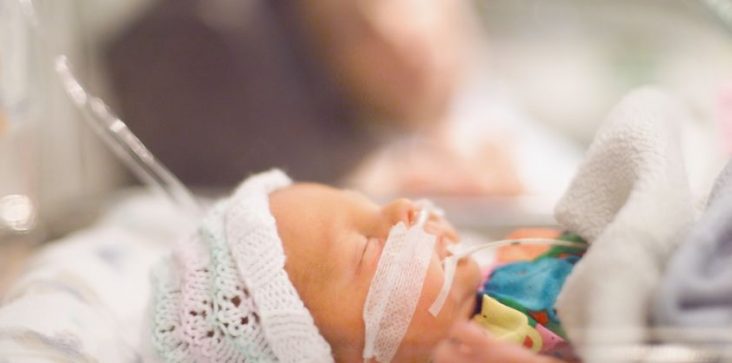NIH funding to help collect, analyze Arkansas maternal health data
by August 5, 2024 10:04 am 219 views

Arkansas is receiving $310,000 from the National Institutes of Health as part of a larger program to support the collection of maternal health data being collected by the University of Arkansas and the Arkansas Children’s Research Institute (ACRI).
The federal funds, a supplement to a five-year $18.4 million grant, were awarded to Dr. Lawrence Cornett with the University of Arkansas for Medical Sciences (UAMS). Cornett directs the Arkansas IDeA Networks of Biomedical Research Excellence (INBRE) program. According to Monday’s (Aug. 5) UAMS press release, the supplemental funding will provide software and other resources to “streamline the production and analysis” of maternal health data in Arkansas.
“It’s a tremendously rich data set,” Cornett said. “It isn’t replicated anywhere else. The beauty of this supplement is that it shows the NIH recognizes it’s important to support this research being done in Arkansas.”
The data “is right now kind of tucked away, but this will help it become more available to more investigators, in a form where it’s useful,” he added.
MATERNAL HEALTH ATTENTION
Maternal health has emerged as a priority issue in Arkansas’ medical and political circles. The UAMS in August 2023 announced a statewide hospital collaboration that aims to prevent maternal deaths. More than 35 hospitals were initially part of the Arkansas Perinatal Quality Collaborative.
Bentonville-based Heartland Forward earlier this year said the estimated annual cost of undesirable birth outcomes in Arkansas is around $878 million. Heartland Forward estimates the state could save about $300 million a year by reducing preterm births and low birth weights by 50% with better maternal health numbers. That would translate to a savings of $16,940 per prevented preterm birth or low birth weight.
In March, Gov. Sarah Sanders signed an executive order to create a new steering committee, the Arkansas Strategic Committee for Maternal Health, that will seek to improve Arkansas’ ranking as the worst state in the nation for maternal mortality. According to the most recent statistics assembled from 2018-2020, Arkansas averages 40 maternal deaths per 100,000 births, ranking the state 50th among 50 states.
“The infrastructure will support research studies of mother and child health at the Arkansas Children’s Nutrition Center and clinical research programs within Arkansas Children’s Hospital,” said Dr. Colin Kay, a professor of pediatrics at UAMS who directs Precision Health Research at ACRI and is overseeing the project. “We’re using machine learning and artificial intelligence to help us make connections between these rich datasets. It’s really next level in helping us generate new hypotheses and studies.”
COLLABORATION PARTNERS
Kay, a nutritional biochemist and expert in interpreting and organizing nutrition health data, will work with UA Fayetteville personnel who specialize in complex databases. Others involved in the project include Dr. Xintao Wu, a professor of electrical engineering and computer science, will lead efforts to build the software applications, data infrastructure and dashboards in collaboration with Kay and researchers at ACRI; and Dr. Kyle Quinn, a professor of biomedical engineering and director of the AIMRC, brings additional experience with AI solutions for biomedical problems.
The collaboration among all parties grew from conversations between Kay and Dr. Alan Tackett, a UAMS distinguished professor of biochemistry and molecular biology. They discussed collaborative data science opportunities with Quinn, according to UAMS.
“The need to improve maternal health care in Arkansas is clear, and this has been highlighted by many state leaders and health care professionals this year,” said Quinn. “Our NIH-funded collaboration is an opportunity to apply state-of-the-art data science approaches to gain a better understanding of how we can improve the health of mothers and their children in Arkansas.”
The supplement brings the total that Arkansas INBRE has received from the NIH to date to $78.8 million.
